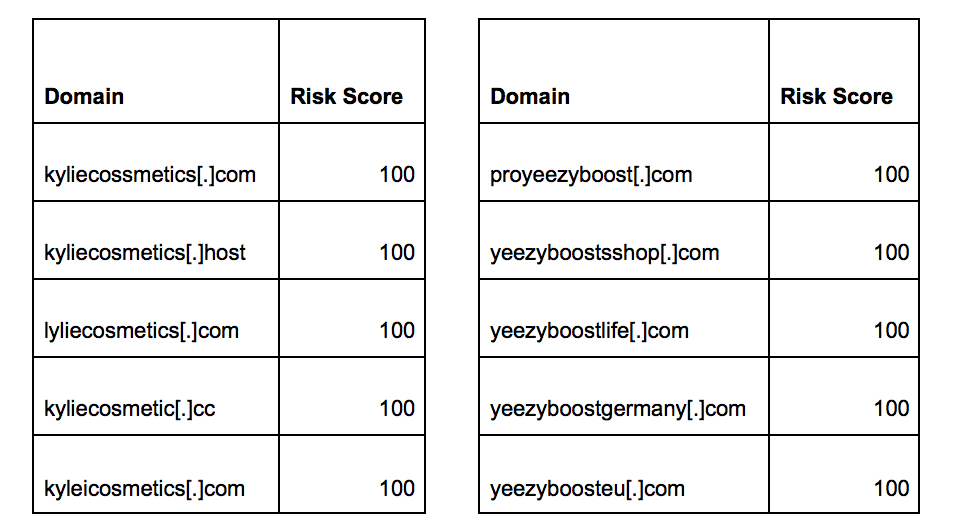London, UK – December 15, 2017 – DomainTools, the leader in domain name and DNS-based cyber threat intelligence, today announced the results of a survey which found that over three quarters (78 percent) of UK consumers have been scammed online more than once, yet nearly all (97 percent) still shop online.
When asked what happened to them as a result of clicking on a scam URL, over a quarter (27 percent) said their computer was infected with a virus. In addition, 12 percent of respondents had credit card information stolen and 11 percent ended up buying a fake product. When asked if they personally knew anyone who had purchased fake goods from a website that they thought was legitimate, over a fifth (22 percent) said yes.
According to Tim Helming, Director of Product Management at DomainTools, “Shopping online continues to grow in popularity, confirmed by the empty stores on Black Friday. Unfortunately, that means phishing and online counterfeiting attacks have likely increased too. As our survey respondents admitted, shoppers are increasingly and unknowingly sharing financial and personal information with these criminals or buying fake goods. As shoppers search for their holiday gifts this year, it’s important that they remember to look closely at URLs and email addresses before clicking.”
However, increased targeted scamming seems to have helped to educate consumers in the UK – over three quarters (73 percent) said that they have changed their online shopping habits as a result of being targeted by scams. In addition, nearly all (92 percent) said that they were aware of phishing. When asked what they would do if they received an email that they were not expecting, or was from someone they didn’t know which contained a link to a website, half said that they would not open the email at all, followed by checking that the domain in the email matches the brand they received the email from (29 percent).
Tim Helming continued “It’s encouraging to see that UK consumers are actively changing their online habits to keep their data safe online. Double checking the links in emails is a great place to start—many illegitimate sites look virtually identical to the real thing. This is where looking closely at the URL can make a real difference for staying safe online.”
Action Fraud group has warned that Yeezy trainers and Kylie Jenner makeup are two of the most common items that trick consumers during the holiday period, so the DomainTools research team analysed domains mimicking Kylie Cosmetics and Yeezy Boost using its PhishEye tool. PhishEye allows users to search for existing and new domains that spoof legitimate brand, product, organisation, or other names. In total, there were 139 domains identified as high risk that contained the two brand names. Some examples include:

DomainTools offers top tips for consumers to avoid falling foul of a spoof website:
- Check for extra added letters in the domain, such as kyliecossmetics[.]com
- Check for dashes in the domain name, such as yeezyboost-online[.]com
- Look out for ‘rn’ disguised as an ‘m’, such as modem.com versus modern.com
- Check for reversed letters, such as kyleicosmetics[.]com
- A plural or singular form of the domain, such as kyliecosmetic[.]cc
Notes to editors:
This survey was carried out by OnePoll in October 2017 and studied the attitudes of 1000 consumers in the United Kingdom.
- DomainTools generates risk scores according to a proprietary algorithm that assigns a “guilt by association” score to the domain based on a number of factors. Like friends, domains tend to cluster with similarly good or bad domains and such patterns are highly predictive of whether a new domain is going to be good or bad.
- The full results are available upon request
About DomainTools
DomainTools helps security analysts turn threat data into threat intelligence. We take indicators from your network, including domains and IPs, and connect them with nearly every active domain on the Internet. Those connections inform risk assessments, help profile attackers, guide online fraud investigations, and map cyber activity to attacker infrastructure. Fortune 1000 companies, global government agencies, and leading security solution vendors use the DomainTools platform as a critical ingredient in their threat investigation and mitigation work. Learn more about how to connect the dots on malicious activity at https://www.domaintools.com or follow us on Twitter:@domaintools
